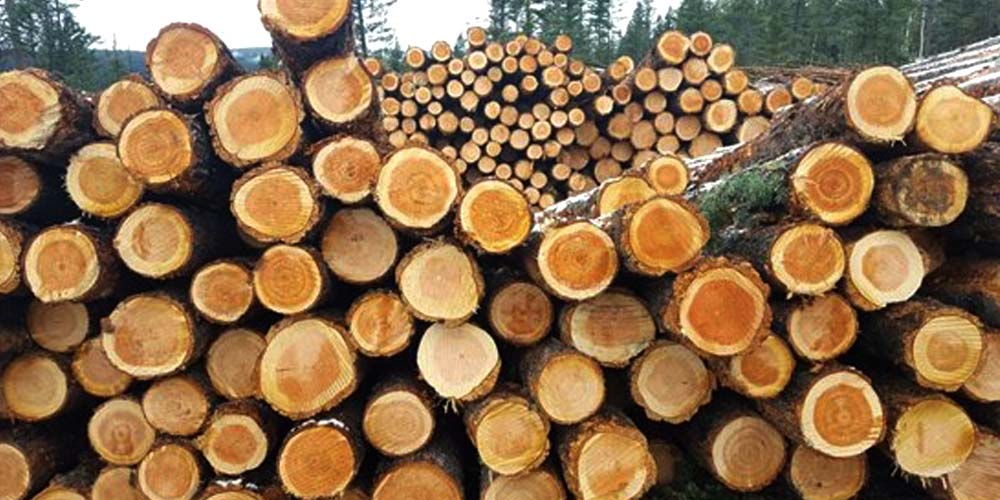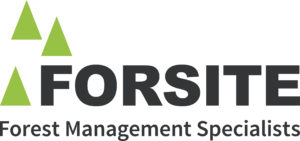Logan Lake Community Forest Corporation
Who We Are
The Logan Lake Community Forest Corporation (LLCF) operates and manages a Community Forest Agreement on behalf of the citizens of the District of Logan Lake and surrounding communities. Our job is to manage the harvesting of timber and ensure the protection and sustainability of the forests and other important values. The vision of the Logan Lake Community Forest is to be stewards of the land and support a healthy and thriving local community and economy for current and future generations by providing benefits and opportunities through sustainable forest management, innovation, meaningful engagement, and diversity of use. Management of the Logan Lake Community Forest includes:
Timber harvesting
Strategic and sustainable development planning
Road construction and maintenance
Reforestation and stand management
Protection of non-timber resources such as wildlife, water, biodiversity, and recreation
Our History

The Community of Logan Lake
In the heart of Gold Country, Logan Lake is one of British Columbia’s newest towns. It was incorporated in 1970 to house the families and workers at the Lornex mine (now the Highland Valley Copper Mine). There were eighty homes, five condos and thirty trailer lots ready for residents, and a school that was complete by enrolment date. The valuable copper of the Highland Valley laid the foundation for the birth and growth of the town. Logan Lake is a growing and friendly community with a big heart that invites you to Discover our Nature!

The Logan Lake Community Forest
A Community Forest Agreement (CFA) is an area-based licence on Crown land with exclusive rights to harvest timber within the CFA area. It is a long-term, 25 year renewable forest licence that is managed by a local government, community group, First Nation, or community-held corporation for the benefit of the entire community.
The 2003 Fire Safe Community initiative prompted the District of Logan Lake to seek a Community Forest Licence. In 2005, Mayor and Council were invited by the provincial government to apply for a Probationary Community Forest Agreement which would enable timber harvesting from Crown land for five years. By 2007, the Probationary Community Forest Agreement “K2E” was established, and in 2011 the Agreement was transitioned into a renewable forest licence, forming the Logan Lake Community Forest that we know today. The Logan Lake Community Forest Corporation is solely owned by the District of Logan Lake and governed by a Board of Directors comprised of current District Councilors and local residents.
The ecosystems across the Logan Lake Community Forest are quite diverse, from the pine and spruce plateau to open forests with Douglas-fir and grasslands in some areas. Due to the historic exclusion of fire on the landscape, change has occurred in the open forest and grassland ecosystems that has made them more vulnerable to disturbances. We actively explore opportunities to implement treatments that help create more resilient ecosystems, which has broad benefits to a range of species including species at risk and generally helps to reduce wildfire hazard.
Guiding Principles

Guiding Principles that Govern Operations of the Logan Lake Community Forest Corporation
The guiding principles that govern the way the Logan Lake Community Forest works is reflected by the deeply held values that have defined us as a community since the 1970’s. From safeguarding health to fostering community to create a sustainable future, we work to make the world a better place now and in the years ahead. The Logan Lake Community Forest is managed to benefit the people of Logan Lake, and as such we consider the multiple resource values we are grateful to have in our backyards. We seek to provide a stable source of revenue and employment while maintaining a high standard of forest stewardship on the land base.
You can read more about our guiding principles in our Strategic Plan.
Benefits to the Communities of Logan Lake
We seek to provide a stable source of revenue and employment opportunities for the communities of Logan Lake by maintaining and leading a high standard of forest stewardship on the land base. We are committed to making a difference by following the pillars of sustainable resource development: environmental, economic, social and cultural.
Accountability and Responsibility
We will be accountable and responsible to the communities of Logan Lake, the broader public, and the environment. Our Board of Directors is selected through an application process and is transparent with its governance and strategic direction. Management of the Logan Lake Community Forest is also completed though a transparent process supported by a sound planning, tracking and reporting process.
Sustainable Resource Management
We believe that sustainable resource management supports our environmental, economic, social and cultural goals. This includes utilization, innovation, research, and respect for all forest values. We will meet or exceed all legal or regulatory requirements of sustainable forest stewardship in BC. We embrace a culture of integrity that extends to our entire business and forest and resource management philosophy.
Respectful Relationships
We acknowledge that the tenure area for the Logan Lake Community Forest is a shared land base with numerous users and resources. It is through this common interest that cooperative and respectful relationships are fostered to ensure sustainable resource management. The Logan Lake Community Forest is committed to working with stakeholders, individuals and communities, both Indigenous and non-Indigenous, on the basis of mutual understanding, respect and trust. We recognize there are many different values and traditions over the area in which the Logan Lake Community Forest operates. This acknowledgement guides us towards meaningful dialogue about our activities, community forestry, and the benefits of sustainable resource management.
Adaptability
Everything is dynamic and as an organization it is important to be adaptive. We will be flexible, prompt and responsive to adapt to the many changing environments. Our ability to adjust to varying circumstances is our strength that is guided by our long term vision of sustainability. This allows us to approach uncertainties or challenging situations, such as changes in the industry or government objectives, with an innovative perspective. Resiliency of the land base is a critical component of adaptability and developing long term sustainability of the Logan Lake Community Forest, particularly in light of climate change.
Safety
Safety in the Logan Lake Community Forest is everyone’s responsibility, which lies with all levels of the organization and with our contractors and partners. We endorse the BC Forest Safety Council SAFE Certification and will seek to only work with companies that are SAFE Certified. Together, we will work to ensure a safe and healthy workplace for everyone, including reducing the threat of wildfire to the communities of Logan Lake, critical infrastructure, and the Logan Lake Community Forest tenure area.
Innovation
Innovation is an integral part of the Logan Lake Community Forest’s vision and mission and is a driving principle for ongoing sustainable resource management. The core business and philosophy of the Logan Lake Community Forest allows for progressive and thoughtful innovation in achieving our goal of forest management and investment. Beyond our primary objective of a profitable forestry company, the Logan Lake Community Forest has a desire to be at the forefront of new approaches and solutions that are effective, efficient, and sustainable.
Our Team
The Logan Lake Community Forest Board of Directors
The Logan Lake Community Forest operates under the direction of a Board of Directors (the Board) comprised of up to eight volunteer members from the local community, including the Mayor and District of Logan Lake Councilors. The Board has a clearly established mandate which makes them responsible for the stewardship and governance of the Corporation. Governance functions include:
- Ensuring that a strategic planning process is in place;
- The principal risks of the Corporation’s business are identified and systems are in place to minimize these risks;
- Succession planning is in place;
- A communications policy for the Corporation is in place; and
- The Corporate’s internal control and management information systems are adequate.
Under this mandate, the purpose of the Board is to establish policies, courses of action and goals of the Corporation.
Current Board of Directors
- Dave Prentice, President / Chair
- Marion Bell, Vice-President
- Dave McFadden
- Bob Van Tongeren
- Toby Forrest
- Robin Smith
- Jim McNeely
Upcoming Meeting Agenda
September 13th, 2023 Meeting Agenda will be posted when available
Previous Meeting Minutes
February 1, 2023 Meeting Minutes
December 14, 2022 Meeting Minutes
October 4, 2022 Meeting Minutes
March 16, 2022 Meeting Minutes
Upcoming Meetings
- September 13, 2023 (proposed)
- December 6, 2023 (proposed)
- January 31, 2024 (proposed)
- March 13, 2024 (proposed)
- June 19, 2024 (proposed)
- September 11, 2024 (proposed)
- December 4, 2024 (proposed)
Interest in the LLCFC Board of Directors?
The Logan Lake Community Forest will be initiating the next Board of Directors nomination process in the Spring of 2024. If you know someone who would be a great addition to our Board and is willing to have their name stand, stay tuned for further information in 2024.


Forest Management Team
The day-to-day operations of the Logan Lake Community Forest are managed by a Forest Management Team who reports to the Board of Directors. The current Forest Management Team is Forsite Consultants Ltd. (Forsite) who were selected by a competitive tender process in the spring of 2015. Forsite is responsible for all day-to-day planning, harvesting, silviculture, and other post-harvest activities of the Community Forest licence. In addition, Forsite is involved in other work such as expansion of recreational trails, First Nations engagement, road rehabilitation, and other special initiatives.

